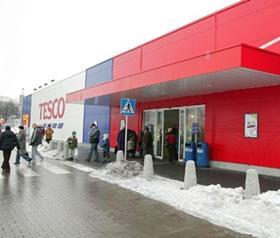
Tesco’s new chief executive has spoken of his plans to focus the UK grocery retailer’s business strategy on overseas growth as its rate of expansion in its domestic market is expected to gradually slow over the next four years.
In an interview with Reuters, Philip Clarke, who replaced Terry Leahy in March, said the company expected to allocate an increasing percentage of its capital spending to its business in the 14 countries where it is present outside the UK.
Discussing his new seven-point strategy for the supermarket operator, which was released earlier this week, Mr Clarke said Tesco had pledged to be “outstanding overseas”, partly through the creation of new “highly valued brands” for its store network.
Tesco’s chief executive, who will present the strategy to an estimated 5,000 managers at 21 meetings to be held over the next three months, said the global focus amounted to “a change of gear, not a change of direction”.
Despite this, Mr Clarke said he expected Tesco to continue to expand in its domestic market at its present rate of growth for a further three years.
However, it remains to be seen if the business strategy will encompass the retailer’s troubled US subsidiary, Fresh & Easy, which recorded larger-than-expected losses of US$296m in the financial year ended February 2011.
Analysts have also speculated that a proposed bill banning the sale of alcohol at self-service checkouts in California, where 126 of Fresh & Easy’s 175 outlets are located, could prompt Tesco’s eventual exit from the US.
Unlike its competitors, Fresh & Easy only uses automated checkouts and analyst Mike Dennis from MF Global told Reuters that, if the bill is passed, it could put further pressure on a business already affected by “high fixed costs and weak sales”.
Despite this, Mr Clarke last month pledged to invest further in Fresh & Easy, adding coffee and fresh bread, to increase the subsidiary’s customer appeal.



